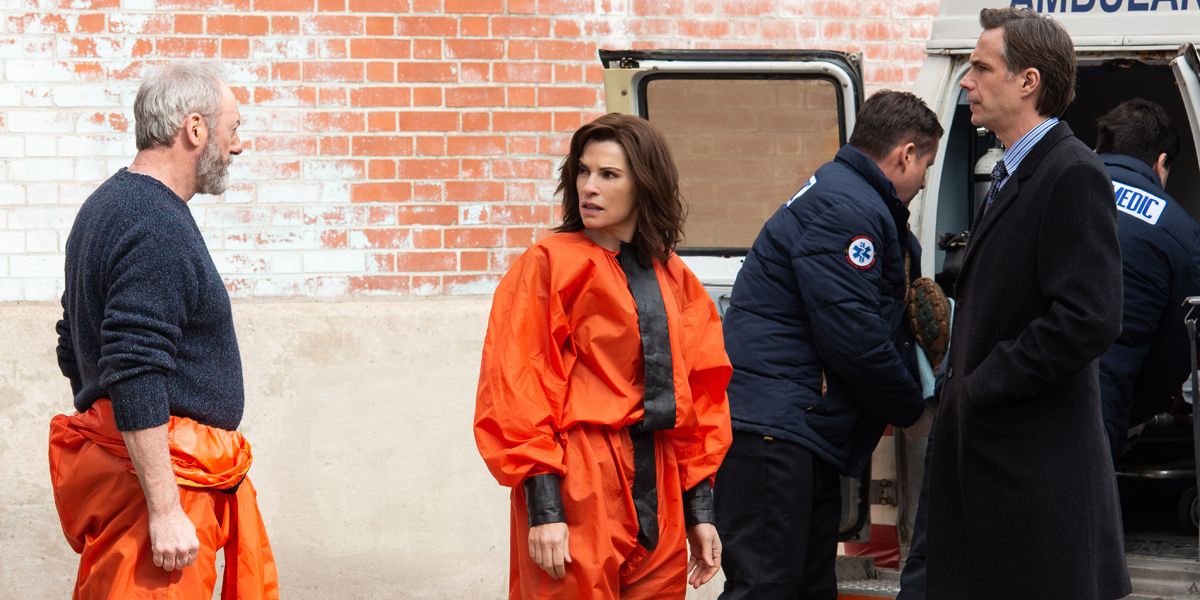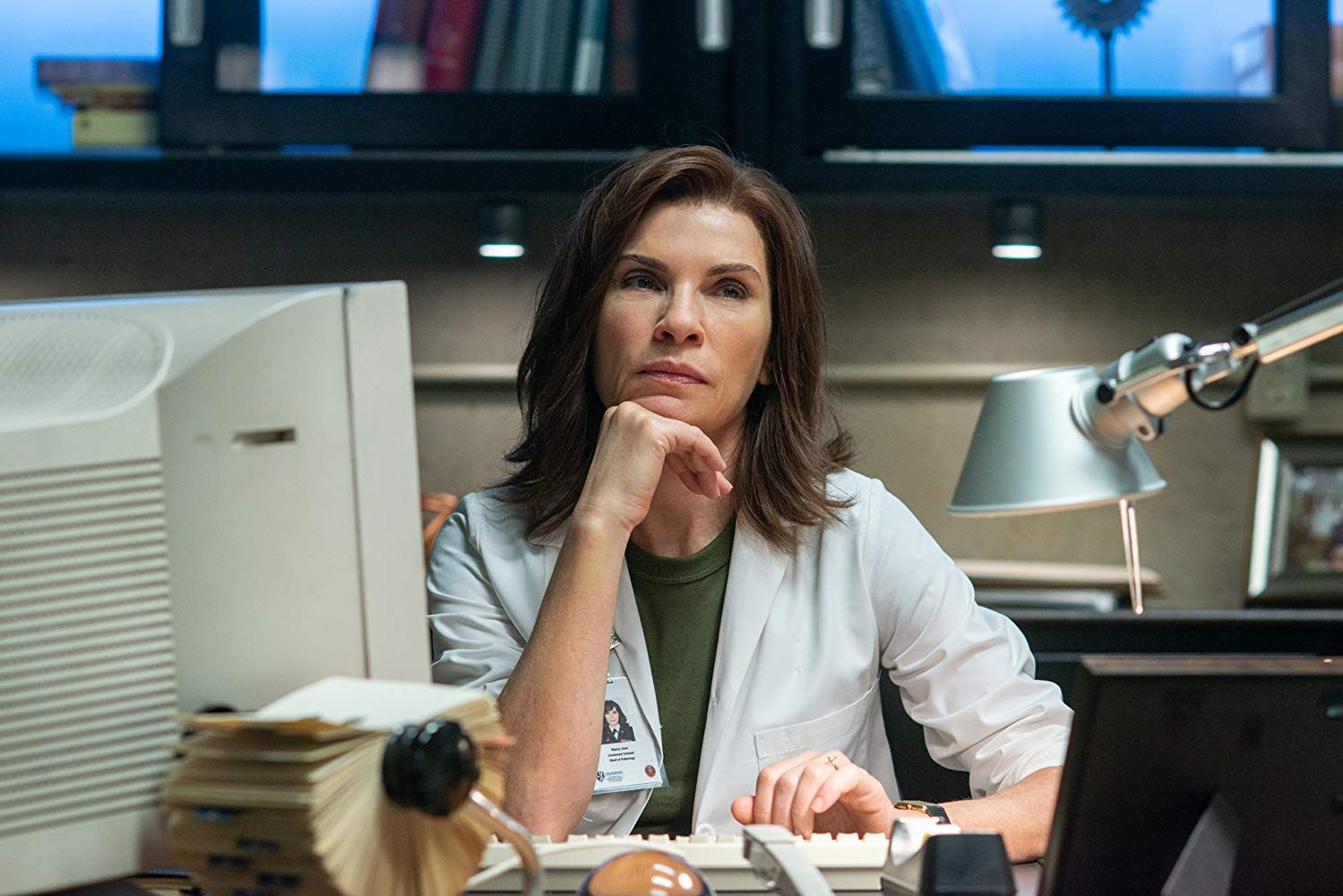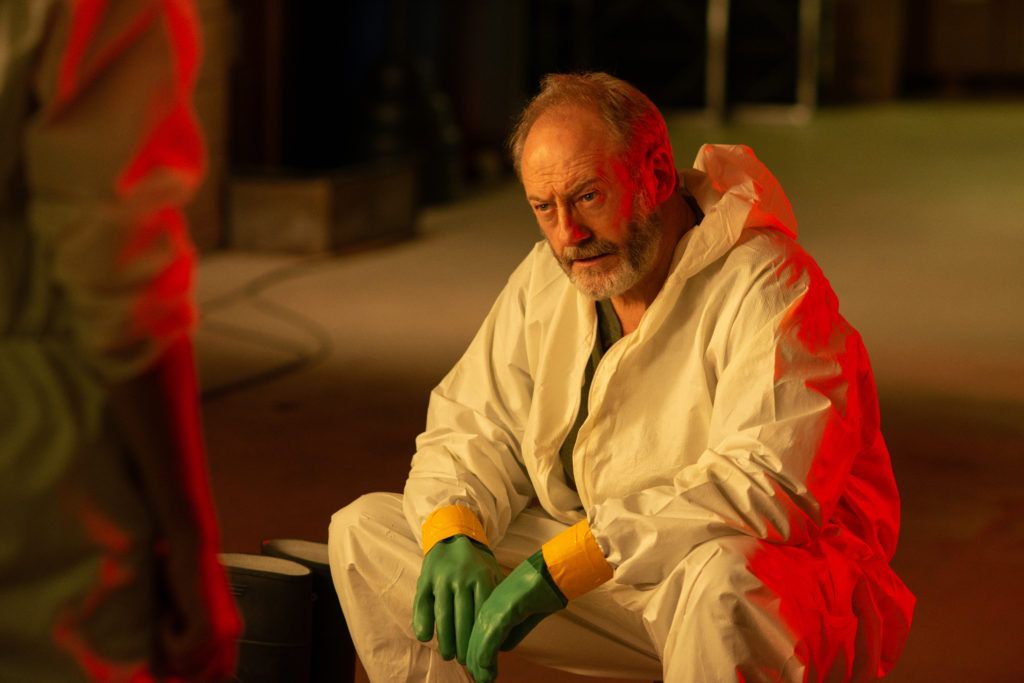Richard Preston’s 1994 nonfiction book The Hot Zone came along at exactly the right time, framing the true story of the discovery of the Ebola virus in the techno-thriller style of Michael Crichton, and becoming a massive bestseller in the process. However, a feature adaptation starring Jodie Foster and Robert Redford fell apart before production began, and the story has since been eclipsed in pop culture by movies like Contagion and Outbreak (which itself was timed to capitalize on The Hot Zone’s success). So National Geographic' six-part television adaptation can’t help but feel a bit behind the times, even as the producers work hard to generate suspense from what is by now well-worn material.
Some of those creators are the same ones who were set to make the movie in 1994: The movie’s intended director, Ridley Scott, is on board here as a producer, as is original producer Lynda Obst, and James V. Hart, who wrote the 1994 screenplay, gets a “created by” credit and co-wrote multiple episodes. The result is a show that sometimes feels like a super-sized 1990s blockbuster thriller, with broadly drawn characters, contrived conflicts and exposition-filled dialogue. The real incident that forms the core of Preston’s book wasn’t the harbinger of a global pandemic that some thought it might be, and it’s bit difficult to buy into the urgency of a story that turned out to be somewhat anticlimactic.
That story takes place in the Washington, D.C., area in 1989, when a group of imported monkeys at a suburban research facility are diagnosed with a disease caused by a filovirus, the family that includes both the Ebola and Marburg viruses, which are deadly to humans (as well as untreatable and incurable). Scientists from the Army’s infectious-disease research division U.S.A.M.R.I.I.D. and the Centers for Disease Control scramble to contain what they believe is a potential catastrophe, all while keeping word of the disease quiet in order to avoid public panic.
U.S.A.M.R.I.I.D.’s Col. Nancy Jaax (Julianna Margulies) leads the operation and emerges as the hero, the one level-headed, forward-thinking expert who knows exactly what to do and doesn’t allow bureaucracy or skepticism to stand in the way. Margulies is the perfect choice for a character who is always the smartest and most forceful person in the room, and she brings intensity and empathy to a fairly stock character. Although Nancy and some of the other characters are based on real people, the writing (from Hart as well as series developers Kelly Souders, Brian Peterson and Jeff Vintar) renders them one-dimensional, and the efforts to explore Nancy’s personal life are especially clumsy.
The Americans’ Noah Emmerich is stuck with the wet-blanket role of Nancy’s alternately supportive and scolding husband Jerry, himself a U.S.A.M.R.I.I.D. disease specialist, although he works with much less dangerous specimens. Margulies and Emmerich lead a generally overqualified cast, who fill in some of the blanks in the stilted writing. Topher Grace adds another weasely jerk to his arsenal as a scientist who potentially places people at risk out of misguided self-interest, and Paul James generates some sympathy as his hapless colleague. Game of Thrones’ Liam Cunningham lends his commanding voice and presence to the show’s most ridiculous character, a sort of rebel epidemiologist who doesn’t play by anyone’s rules and has to be called back in from remote isolation to work on the case, like he’s a secret agent who’s renounced his life of violence for ascetic repentance.
Later episodes feature extensive flashbacks to the initial discovery of Ebola in Zaire in 1976, by Cunningham’s Wade Carter and James D’Arcy’s by-the-book Trevor Rhodes, who are set up as adversaries with opposite approaches to identifying and containing deadly diseases. Their efforts have a bit more weight because they’re actually on the front lines of uncharted danger, but their bickering over tactics quickly becomes tiresome, and the outcome of their mission is predetermined, since the series has already shown where they end up years later.
The investigation into the sick monkeys plays out slowly, and probably would have been more effective condensed into a single feature film. At the same time, The Hot Zone isn’t concerned with intricate procedural details, and for a National Geographic series based on a classic of popular-science literature, it’s not particularly scientific.
The show’s directors go overboard with the close-ups of oblivious people touching door handles or drinking from cups or hugging and kissing each other, turning the story of medical inquiry into a series of cheap jolts to the audience. That’s probably how it would’ve played out in 1994, too, but at least then it would’ve been a little more timely.
Airing Monday, May 27, to Wednesday, May 29, at 9 p.m. ET/PT on National Geographic, The Hot Zone stars Julianna Margulies, Noah Emmerich, Topher Grace, James D’Arcy and Liam Cunningham.



